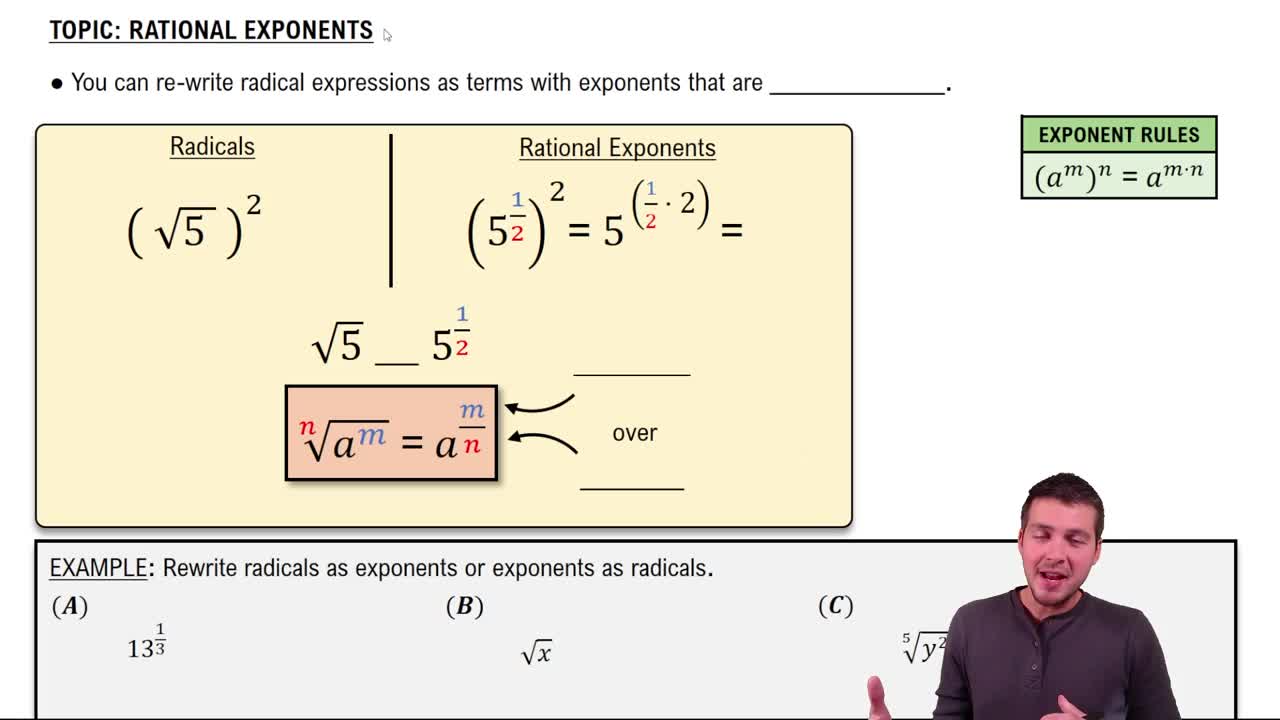Here are the essential concepts you must grasp in order to answer the question correctly.
Exponential Functions
Exponential functions are mathematical expressions in the form of f(x) = a * b^x, where 'a' is a constant, 'b' is the base, and 'x' is the exponent. In this context, e is a special mathematical constant approximately equal to 2.71828, which is the base of natural logarithms. Understanding how to manipulate exponential expressions is crucial for simplifying or evaluating them.
Recommended video:
Reciprocal of Exponents
The reciprocal of an exponential expression, such as 1/e^6, can be rewritten using the property of exponents that states a^(-n) = 1/a^n. This means that 1/e^6 can be expressed as e^(-6). Recognizing this property allows for easier simplification and evaluation of expressions involving exponents.
Recommended video:
Simplifying Expressions
Simplifying expressions involves reducing them to their most basic form while maintaining their value. This can include combining like terms, applying exponent rules, and rewriting expressions in a more manageable format. In the case of 1/e^6, applying the reciprocal property leads to a simpler expression, e^(-6), which is easier to interpret and work with.
Recommended video:
Simplifying Algebraic Expressions
 Verified step by step guidance
Verified step by step guidance Verified Solution
Verified Solution



 7:3m
7:3m